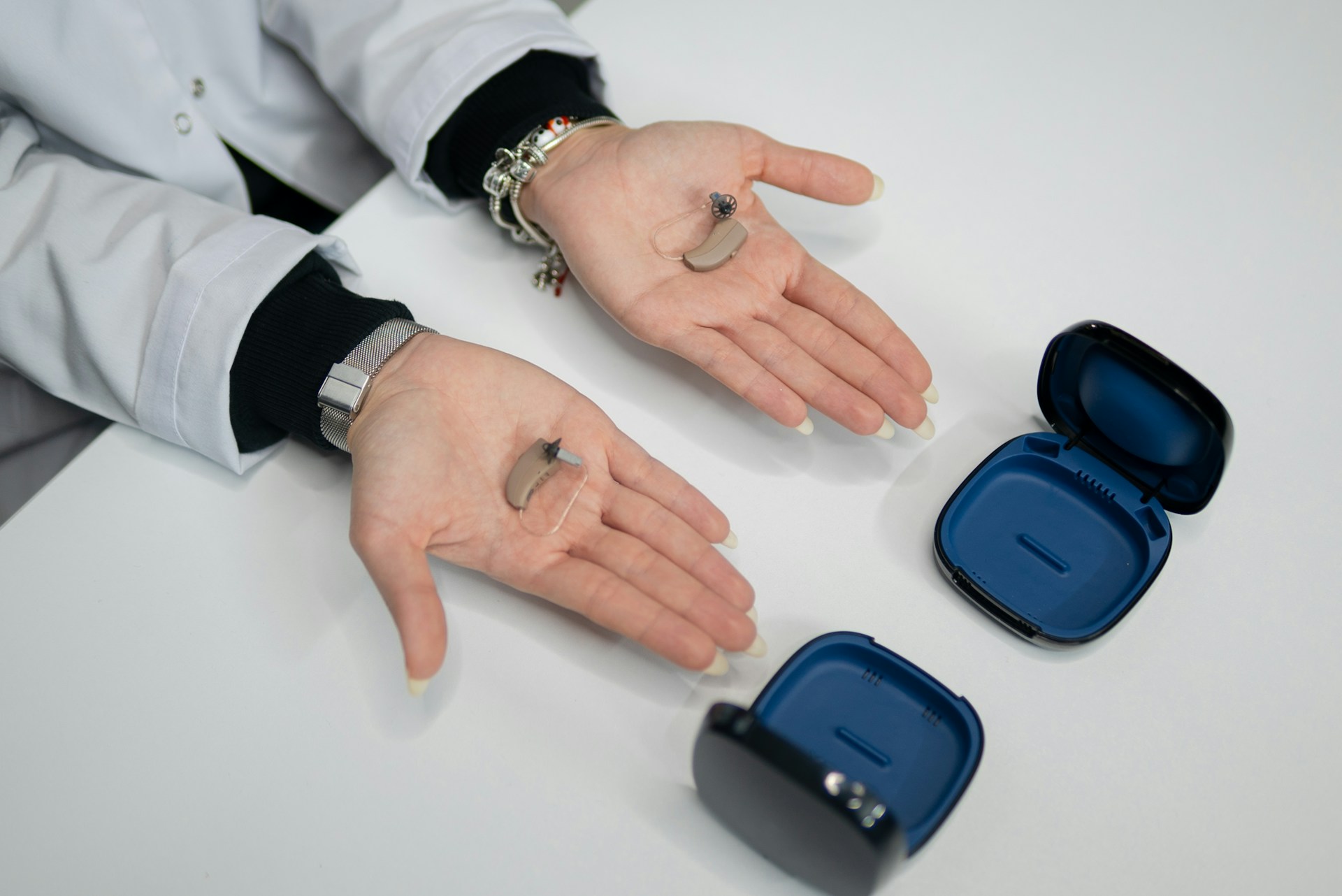Everyday activities can have a surprising impact on your hearing health. You might not think twice about the volume of your headphones or the noise from your power tools, but these habits could be quietly affecting your ears.
Let’s face it; losing even a bit of your hearing can make life tricky, turning once enjoyable activities into frustrating experiences. By understanding the habits that might harm your ears, you can make simple changes and protect your hearing for the long run.
Are there times when you struggle to follow conversations in noisy places, or do you frequently ask others to repeat themselves? These scenarios might seem insignificant now, but they can be early warning signs of hearing challenges.
Imagine being at a lively family gathering, full of laughter and chatter, yet missing out on the jokes because you can’t keep up with the conversation. It’s not where anyone wants to be. Identifying and altering daily routines can be the key to maintaining clear and sharp hearing.
Loud Music and Headphones
Listening to music is one of life’s pleasures, making tedious chores enjoyable and uplifting our mood. However, cranking up the volume on your headphones could be doing more harm than good. The inner workings of your ear are sensitive, and prolonged exposure to loud music can lead to irreversible damage. Constantly listening at high volumes is like sanding wood with a rough file; it gradually wears down the delicate hair cells in the ear that are crucial for hearing.
To help protect your hearing, consider these safe listening habits:
– Keep the volume at a comfortable level. A good rule of thumb is to set your device at no more than 60% of its maximum volume.
– Take regular breaks. Giving your ears a rest reduces the risk of damage.
– Opt for noise-cancelling headphones. They help block out external noise, allowing you to hear your music clearly without blasting the volume.
Taking these steps ensures you can continue enjoying your favorite tunes without damaging your hearing. It’s a simple way to preserve your ears’ health while still getting your daily soundtrack fix.
Household Chores and Power Tools
Noise isn’t confined to concerts and city streets; it can be rampant right at home. Household chores often involve equipment that can produce harmful levels of sound. Whether you’re mowing the lawn or using a vacuum cleaner, these activities expose you to noise that may endanger your hearing over time. Power tools, for instance, can be as loud as a passing motorcycle, and without protection, prolonged exposure can lead to hearing challenges.
Here are some simple solutions to shield your ears while tackling chores:
– Wear hearing protection, like earmuffs or earplugs, when using noisy equipment.
– Opt for quieter appliance models if possible. Many manufacturers now prioritise noise reduction.
– Limit the amount of time spent around loud equipment and take regular breaks to give your ears some relief.
By being mindful of how often and how loud your everyday sounds are, you can significantly reduce the risk of hearing damage. It’s about making conscious choices, so your ears remain in great condition, ready for every conversation and melody life has to offer.
Poor Ear Hygiene
Neglecting ear hygiene can lead to a host of problems, including hearing loss due to excessive earwax buildup. Earwax plays an important role in protecting your ears from dust and bacteria, but too much of it can block the ear canal and reduce your ability to hear clearly. This blockage might result in a sensation of fullness, discomfort, or even temporary hearing loss. Maintaining a regular cleaning routine is simple and can prevent these issues from arising.
Here are some safe tips to keep your ears clean:
– Avoid using cotton swabs or any sharp objects inside your ears. These can push wax deeper into the ear canal or cause injury.
– Wipe the outside of your ears with a warm, damp cloth as part of your regular washing routine.
– If you suspect excessive wax left in your ear, consult with a healthcare professional instead of trying to remove it yourself.
By taking care of your ear hygiene, you help ensure that your hearing remains unobstructed and comfortable, keeping you in tune with the world around you.
Neglecting Hearing Health
Regular hearing tests aren’t just for those experiencing noticeable hearing loss; they’re a smart way to monitor and maintain your ear health over time. Many people put off getting their hearing checked until they’ve already experienced significant loss, but regular check-ups can identify potential issues early on. This proactive approach allows for timely interventions that might prevent further decline or preserve existing hearing levels.
Consider the following habits to stay on top of your hearing health:
– Schedule regular hearing check-ups, especially if you’re frequently exposed to loud environments.
– Pay attention to any subtle changes in your hearing, such as ringing in the ears, which is often linked to tinnitus.
– Educate yourself on ways to protect your ears, like using earplugs at concerts or when working on noisy DIY projects.
Taking your hearing health seriously means you’re less likely to miss out on life’s treasured sounds, from your favourite tunes to family conversations.
Watching TV or Attending Events at Loud Volumes
Binging on your favourite shows can become problematic if the TV volume is frequently turned up. High volumes, whether from the TV or during live events like concerts, can contribute significantly to hearing damage over time. It’s easy to get carried away with the excitement of a movie or the energy of a concert and forget about the impact on your ears.
Practical strategies to safeguard your hearing:
– Start with a low volume and adjust only if needed. A sound level that’s too high if you can’t hear yourself speak at a normal volume.
– Use subtitles or hearing assistance devices to improve clarity instead of increasing the sound.
– Opt for quieter seating at events, or use earplugs to tone down excessive noise without sacrificing the experience.
By being mindful of how often and how high the sound levels are, you protect your hearing from gradual deterioration, allowing you to enjoy audio entertainment without fear of long-term effects.
A Healthier Hearing Future Awaits
Protecting your hearing doesn’t require major lifestyle changes; it’s about being aware of everyday habits and making small adjustments that add up over time. Whether it’s considering the volume of your music, being mindful during chores, or prioritising regular hearing check-ups, each step is a proactive move towards safeguarding your hearing for the future.
As you become more conscious of these small changes, you’ll find yourself in a better position to preserve the quality of your hearing and enjoy the world of sound around you. Embracing these practices ensures that the joys of clear and vibrant hearing are yours to cherish for years to come.
Ensure your golden years are filled with clarity and connection by prioritising your hearing health. With regular check-ups, you can prevent hearing issues from affecting your quality of life. Get in touch with our team at Country Hearing Care for a comprehensive hearing test in Australia to stay engaged with your loved ones and community. Start your journey towards better hearing today!











